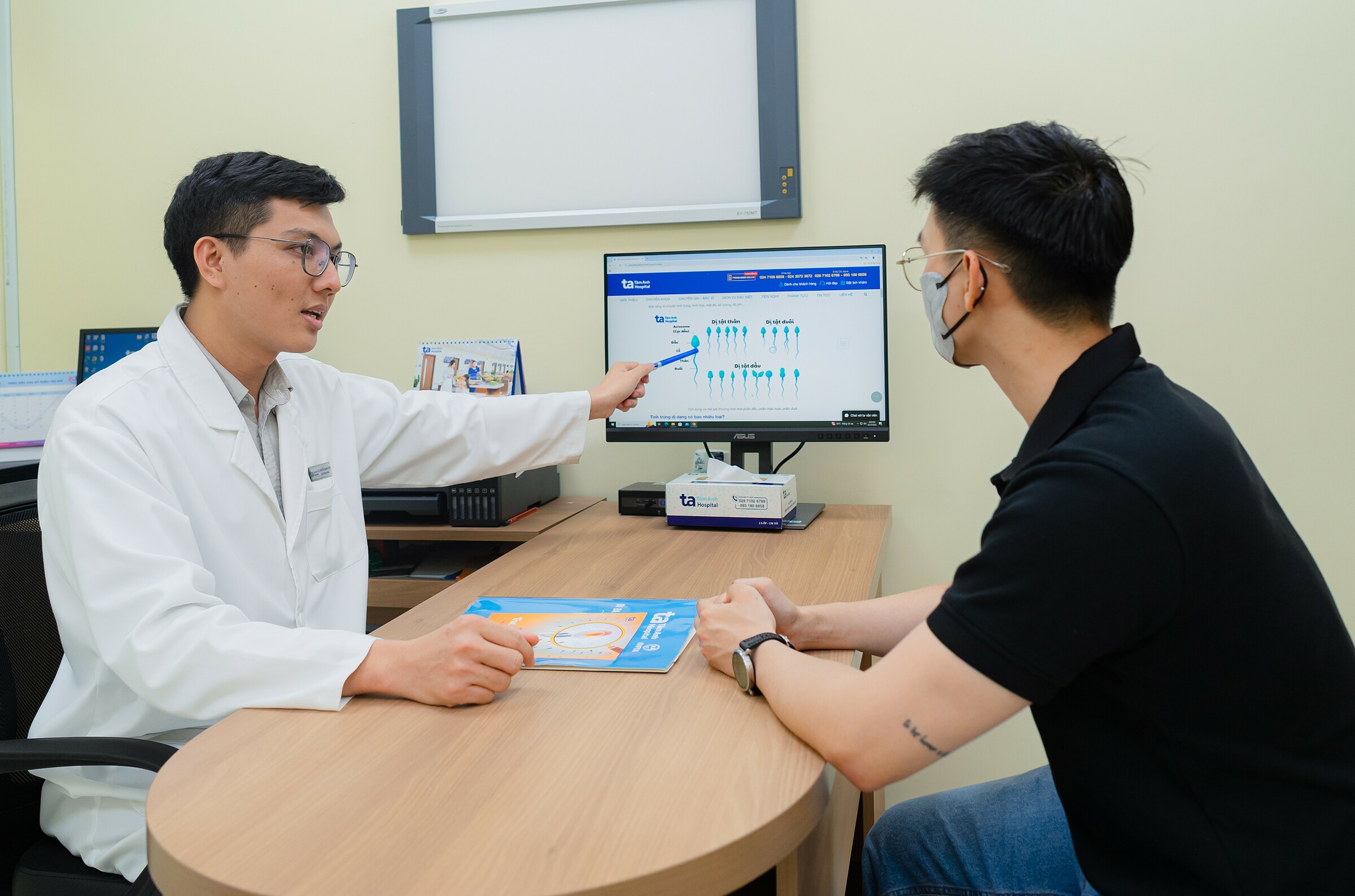Mumps is an acute infectious disease caused by the mumps virus. Dr. Nguyen Quang Vinh of the Andrology Unit at Tam Anh General Hospital's Fertility Support Center in Ho Chi Minh City (IVF Tam Anh TP HCM) explains that when men contract mumps, the virus can travel through the bloodstream and attack the testicles. This can cause swelling, severe pain, high fever, and damage to the sperm-producing tissue, leading to reduced sperm production or complete loss of sperm production. Studies show that about 20-35% of men with mumps develop orchitis (testicular inflammation). In severe cases, the testicles can atrophy permanently, leading to infertility, increasing the need for sperm donation or adoption.
Treatment for male infertility due to testicular atrophy after mumps mainly focuses on sperm retrieval techniques, typically micro-TESE. Dr. Vinh explains that the micro-TESE technique at IVF Tam Anh uses an advanced microsurgical system with 30x magnification to increase the success rate of finding sperm. The ISO 5 cleanroom lab-within-a-lab system ensures quick access to testicular tissue samples by embryologists for sperm retrieval and other advanced IVF techniques. Intracytoplasmic sperm injection (ICSI) can increase the fertilization rate. The optimal embryo culture system contributes to obtaining many high-quality embryos.
 |
Dr. Vinh consults on a treatment plan for male infertility. Illustrative photo: Thanh Luan |
Dr. Vinh advises that men with mumps can reduce their risk of infertility by seeking early medical attention and treatment to minimize testicular damage. Those with mild damage who receive prompt medical treatment may partially or fully recover their fertility. In some cases, sperm freezing is recommended to preserve the possibility of having children in the future.
Mumps can also affect female fertility. The mumps virus can cause oophoritis (ovarian inflammation), leading to ovarian dysfunction, diminished ovarian reserve, and impacting ovulation and the ability to conceive naturally. Women with mumps should seek early treatment to reduce the risk of oophoritis. Unmarried women whose fertility is affected can freeze their eggs to preserve the option of having children with their own eggs in the future.
Couples who have not conceived after a year of marriage can increase their chances of having biological children and reduce costs by seeking early diagnosis and treatment. In 2024, the pregnancy rate after embryo transfer at IVF Tam Anh TP HCM averaged over 78%. For women under 28, the rate was nearly 85%.
Hoai Thuong
| Readers can submit questions about infertility here for doctors to answer. |












